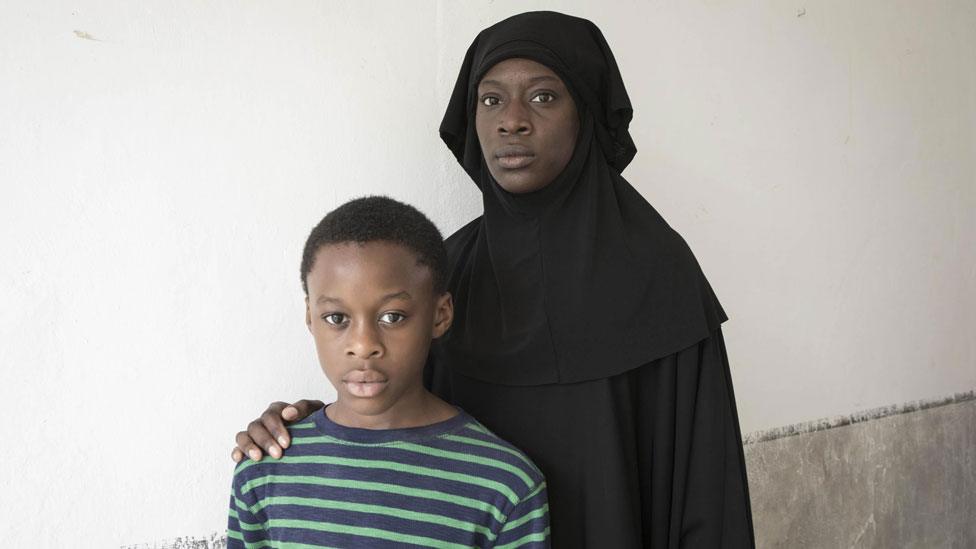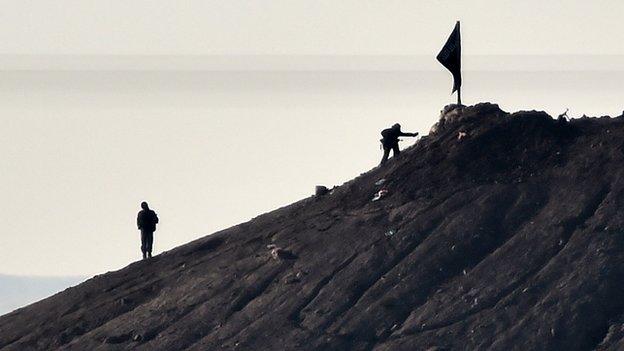The State: Viewers and critics praise Channel 4 IS drama
- Published

The four-part drama was shown over four consecutive nights
A drama about British Muslims who join the jihadist group Islamic State has drawn praise from critics and viewers after coming to an end on Channel 4.
"One of the most thought provoking, brave and terrifying things I've ever seen," tweeted Alis Wyn Davies, external.
Fellow Twitter user Tony Sharpe agreed, external, calling Peter Kosminsky's four-part drama an "extraordinary piece of work".
"Uncomfortable but essential viewing," was Radio Times' verdict, external, while The Guardian called it, external "compelling".
On the downside, critic Stuart Jeffries felt the programme was less effective than Kosminsky's previous dramas "at getting us into his protagonists' mindsets".
Those dramas include The Promise and Wolf Hall, his Bafta-winning adaptation of Hilary Mantel's historical novel.

Ony Uhiara played a woman who travels to Syria with her son (Nana Agyeman-Bediako)
The State, which was broadcast over four consecutive nights, followed a group of radicalised men and women as they travel to Syria.
Channel 4 faced calls to postpone the programme in the wake of the Barcelona terror attack, with some expressing concerns that it glamorised IS.
After Wednesday's final episode, though, some viewers said those concerns were unfounded.
"I thought #thestate was gripping and depressing," tweeted Eloise Black, external. "In no way did it glamourise ISIS if anything it should put people off."

Actor Sam Otto said he was "truly humbled" by viewers' responses
"People claiming #TheState is glamorising Isis are watching a different program to me," agreed Emma Stephen, external.
Actor Sam Otto was singled out for praise for his role as Jalal, a young man who is inspired to travel to Syria after his brother is killed there.
"When people say acting is all in the eyes they must have meant Sam Otto," wrote Twitter user Sahra Johnston, external.
Otto took to Twitter himself, external on Wednesday to say he felt "truly humbled", and described The State as "the most profound experience of my life".
One viewer, though, did express surprise at the unexpected appearance of EastEnders actor Nitin Ganatra as Jalal's father.
Allow X content?
This article contains content provided by X. We ask for your permission before anything is loaded, as they may be using cookies and other technologies. You may want to read X’s cookie policy, external and privacy policy, external before accepting. To view this content choose ‘accept and continue’.

Follow us on Facebook, external, on Twitter @BBCNewsEnts, external, or on Instagram at bbcnewsents, external. If you have a story suggestion email entertainment.news@bbc.co.uk.
- Published22 October 2014
